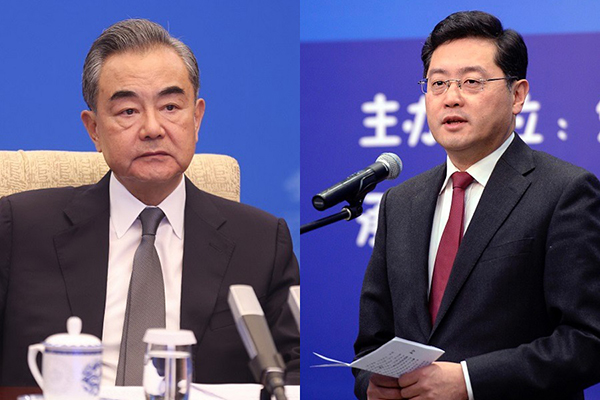
In remarks made just four days before he was named as China’s new Foreign Minister, Qin Gang referred to “border issues” with India and said the status quo is that both sides are “willing to ease the situation” and “jointly protect peace along their borders”.
Qin, who was China’s Ambassador to the US, was named, on 30 December, as the country’s new Foreign Minister and will replace Wang Yi who held the post for a decade. Qin had earlier served as Chinese President Xi Jinping’s chief protocol officer between 2014 and 2018.
On December 26, in an op-ed article titled “How China Sees the World” for the US magazine “National Interest”, Qin referred to India-China ties in the context of the perception that China was “poised” to break the status quo. He also blamed the US for challenging the status quo on Taiwan, and Japan for altering the status quo in the South China Sea.
Qin’s article is being seen in Delhi as views vetted by Beijing.
“China’s development means a stronger force for peace, not a growing power poised to ‘break the status quo’, as some call it. The tension across the Taiwan Strait was not created by the Chinese mainland breaking the status quo, but by ‘Taiwan independence’ separatists and external forces continually challenging the status quo of ‘one China’,” Qin wrote.
“In the case of the East China Sea, it was Japan who attempted to ‘nationalize’ Diaoyu Dao ten years ago, altering the “status quo” between China and Japan of agreeing to put aside differences. In the South China Sea, the status quo is that regional countries are consulting on a code of conduct that will lead to meaningful and effective rules for the region. As to the border issues between China and India, the status quo is that both sides are willing to ease the situation and jointly protect peace along their borders,” he wrote.
Framing his remarks, Qin wrote that the 20th National Congress of the Communist Party of China (CPC), which was held in October, reaffirmed that “China is committed to its foreign policy goals of upholding world peace and promoting common development, and it remains dedicated to building a community with a shared future for mankind. Such an official, open declaration of the CPC’s worldview sheds light on the way it engages with the world”.
On China-US ties, Qin wrote: “If people choose to see the world from a ‘democracy vs. authoritarianism’ perspective, they will very likely usher in a world of division, competition, and conflict; but if they view the world as a community with a shared future, then openness, cooperation, and win-win outcomes will be the fruits of their choice.”
The views expressed by China’s newly named Foreign Minister are significant. They come at a time when Indian and Chinese troops have been locked in a border standoff for more than 31 months. And, they indicate that Beijing is prioritising the issue.
He wrote: “As President Xi Jinping stressed in his meeting with President Joe Biden in Bali last month, the world is big enough for the two countries to develop themselves and prosper together. China-U.S. relations should not be a zero-sum game where one side out-competes the other or thrives at the expense of the other. China and the United States now share more common interests, not less. This is how the notion of a community with a shared future for mankind mirrors in China-U.S. Relations.”
Qin also expressed concern about the situation in Ukraine and called for peace talks between Russia and Ukraine as well as dialogue between the US, the EU, NATO, and Russia.
“China is highly concerned about the situation in Ukraine. Though deeply saddening, what has been happening there reveals some important lessons: conflicts and wars produce no winner; there is no simple solution to a complex issue; confrontation between major countries must be avoided. The most urgent task for the moment is to promote peace talks between Russia and Ukraine as well as dialogue between the United States, the EU, NATO, and Russia. In the long term, people must realize that grounding one’s own security on other countries’ insecurity won’t work; it is necessary to establish a balanced, effective, and sustainable European security framework. There is no choice other than this,” he wrote.
“As residents of the same world, we should and can listen to each other, narrow our gap in perceptions of the world, and explore a way to get along based on mutual respect, peaceful coexistence, and win-win cooperation,” he wrote.

















